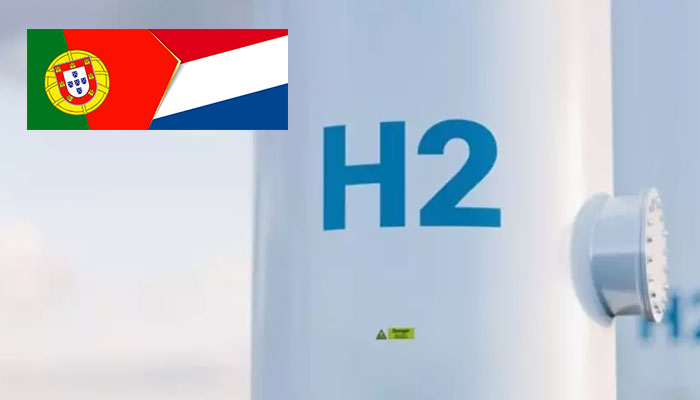An agreement to investigate the viability of manufacturing, liquifying, and shipping green hydrogen from Portugal to the Netherlands, so it would subsequently be stored and distributed for sale, has been signed by Anthony Veder, Shell New Energies NL BV, ENGIE, Vopak, and others.
The consortium wants to electrolyze hydrogen using renewable energy at the Sines port’s industrial zone. The hydrogen is then liquefied and transported to the port of Rotterdam through a liquid hydrogen transporter for sale and distribution. By 2027, the first shipment of liquid hydrogen is expected to be delivered from Sines to Rotterdam.
This breakthrough is supported by major industry participants in the heavy duty, maritime, and airline sectors since it is in line with their goal of decarbonizing operations. They view liquid hydrogen as a critical component of the answer to importing renewable energy into countries like the Netherlands or Germany. According to Head of Truck Technology and Member of the Board of Management at Daimler Truck AG, Dr. Andreas Gorbach, they are creating the next generation of vehicles that can use liquid hydrogen directly.
It is necessary to increase client confidence in liquid hydrogen. An efficient way to do this is through the employment of policy tools that offset higher costs for end users. These tools are essential for expanding liquid hydrogen production, lowering production costs, and driving infrastructure growth throughout the whole supply chain.
Within the consortium, Anthony Veder and Vopak will work on transportation, storage, and distribution, while Shell and ENGIE will partner along the entire value chain. They will first evaluate the possibilities for creating, moving, and keeping about 100 tpd, with the possibility of scaling this up in the future.
The Portuguese and Dutch governments have increased their share of the objective for hydrogen production and transportation. Following the inking of a Memorandum of Understanding in 2020, this feasibility study was conducted. Furthermore, in May this year at the Rotterdam World Hydrogen Summit, Portugal and the Netherlands reaffirmed their shared objectives.





































